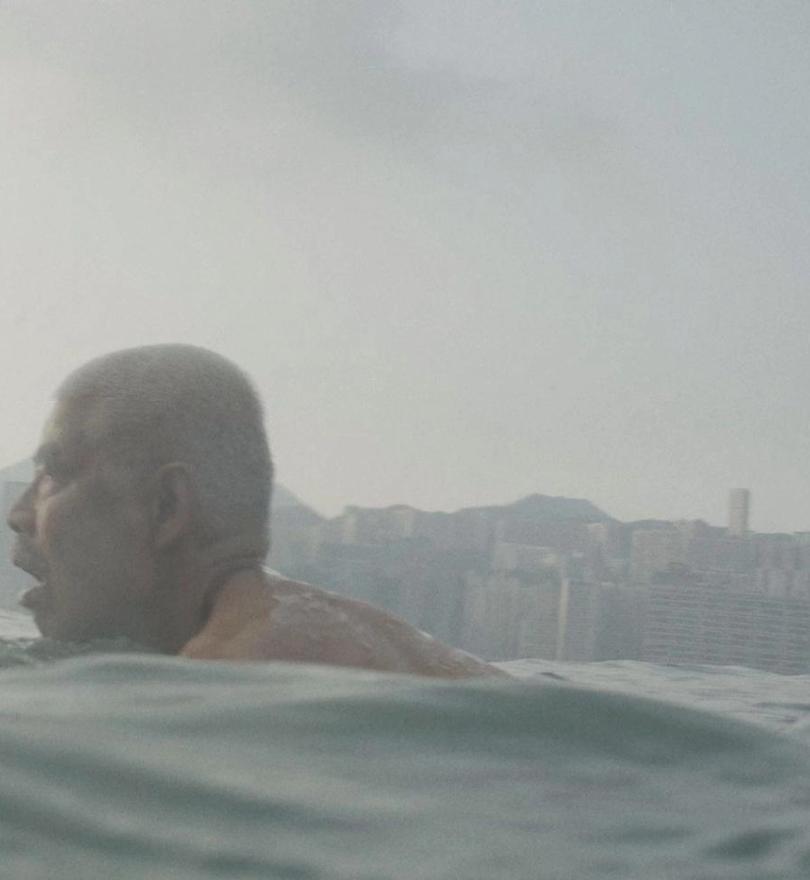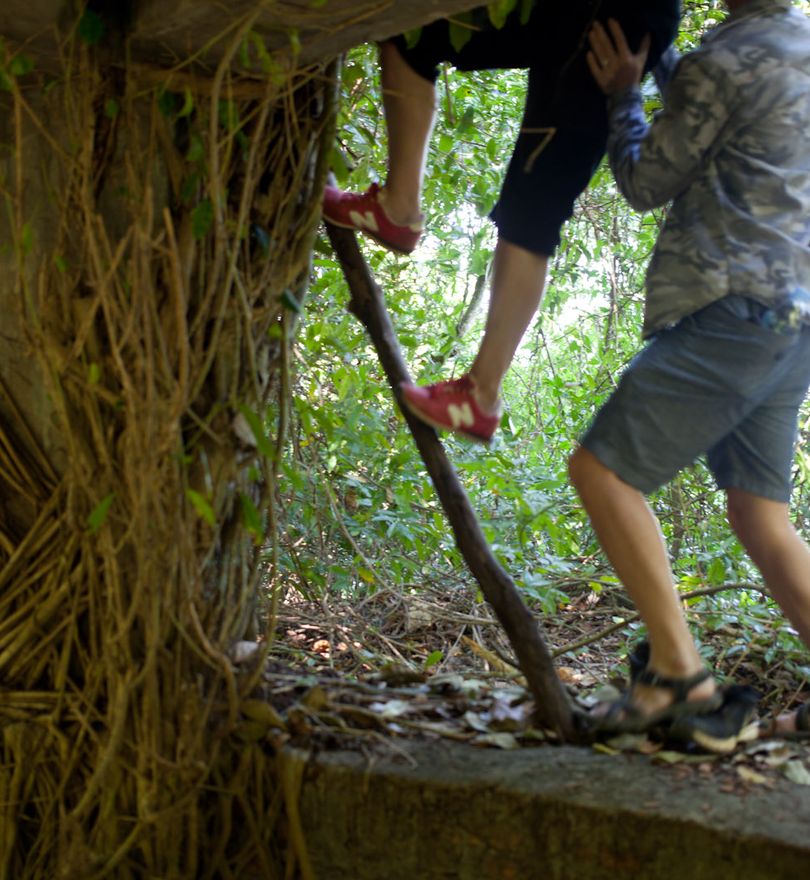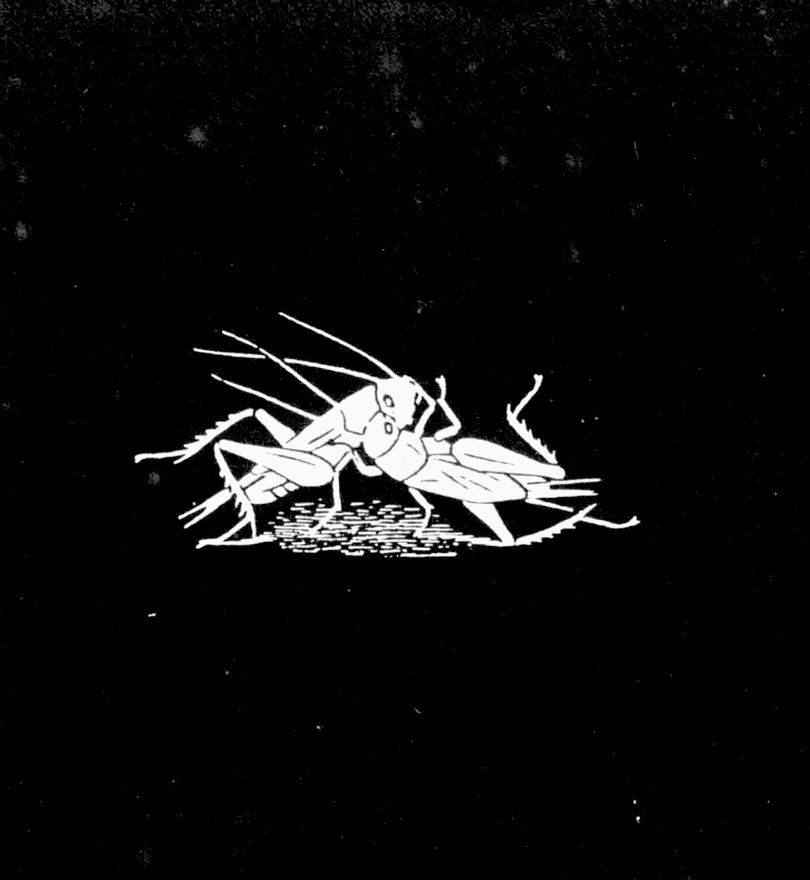
Amidst rising tension, Saraid de Silva traces the path out of her artistic adolescence, clinging to defiance even as optimism wanes. Diving headfirst into the frustration of feeling unheard, Saraid explores this as an artistic and political condition — but also, an opportunity.
Please note that this essay discusses sexual assault, violence and genocide.
Acting students long for a bit of rough treatment. For someone to be gruff with us. We want our director or tutor to look us in the eye and rattle off all our weird physical habits. We attend rehearsals hoping to be unravelled, shamed for the clues our bodies and voices give away. For what we didn’t know other people could even see.
This is what I was after when I began studying acting at Unitec in 2010. I moved to Tāmaki Makaurau and brought my dreams with me. I wanted to devise work for Silo Theatre. To write for Metro. To act on Shortland Street. I really, really liked Auckland.
This desire that acting students have to be taken apart is complicated, because it’s masochistic, yes, but it’s also practical. We know the career we’re choosing has very little chance of working out. We need guidance. A firm hand makes us feel safe.
Degree complete, I graduated in 2012 and booked nothing. In lieu of paid work I began to write plays. With my co-writer and co-performer Amelia Reynolds, scripts were written in bedrooms and cafés, rehearsals were shared between the living rooms of our separate flats, and my mum’s work printer was bled dry. We had no roadmap — we just coerced more experienced theatre makers into directing us. We paid them with our own money. I made mine in hospitality. I can’t remember what Amelia was doing at the time. I’m sure she had a real job.
A firm hand makes us feel safe.
It took a while for me to notice how many of our peers had parents in the entertainment industry. Eventually I saw it in the dust left in their wake. At least some degree of success was guaranteed if people knew about your family. In that sense, Auckland’s theatre scene wasn’t so different from my high school in Christchurch.
A last name the casting director recognises is good, but a name they can pronounce is essential. I looked around, hoping for a strict but knowing mentor to pull me apart, show me what I had been doing wrong. Everyone was far too busy.
⁘
In 2013, the Roast Busters hit the news. A group of young men based in West Auckland were accused of forcibly intoxicating girls (many of whom were underage) and gang-raping them. John Tamihere and Willie Jackson excused the men’s actions as mischief on their Radio Live talkback show. Live on air, they gleefully bullied a friend of one of the victims who had called in. The New Zealand Police’s response was so limp that just two years later they formally apologised to the young people they’d misled and whose testimonies they had buried. They didn’t lay any charges until 2020.
In researching Roast Busters many years later I’m chilled by the details. Joseph Parker and Beraiah Hales were the group’s poster boys, but not the only members — the police identified thirty-five young men as persons of interest. I don’t remember anything at the time mentioning ‘gang rape’. Little I read now mentions that the men filmed the assaults and posted them to Facebook. Did I make that up? It struck me so deeply. How much has been lost to the murk of the internet?
Alex Casey has written about it, as part of her long and excellent career spent listening to victims of sexual assault, and Tania Sawicki Mead echoed many of our thoughts when the group’s ringleader resurfaced five years ago. It is both depressing and comforting to see there are plenty of people haunted by this case and its shadow. It is no comfort whatsoever to imagine what at least 110 victims are still feeling.
The Roast Busters case wasn’t my only interaction with sexual assault, but it was the first time I watched it be codified. When we discuss a story about rape we so often reveal our own history. This case and the discussions of it exposed us. Seeing a group of rapists loudly get away with their crimes was the first time I noticed the walls were rotting.
⁘
It’s 2024 and I have lived in Tāmaki for 14 years. This April I spent two weeks in London launching my novel, and when I returned to my full-time job as a script editor on Shortland Street, I found the Palestinian flags and Boycott, Divestment, Sanctions infographic I had blu-tacked to the door of my shared office had been taken down. We are often told we shouldn’t meet our heroes. I wonder if realising the dreams of our younger selves should also be avoided.
The Zionist entity’s genocide of the Palestinian people intensified after the resistance efforts of 7 October. The protests in Aotearoa since then echo an urgent global desire for the freedom of Palestinians. But somehow, wilfully and with great intent, our institutions are making every effort to ignore this genocide. They seem desperate now to convince us that those of us who refuse to are the minority.
Last November, on West 34th Street in New York City, I watched people hanging out of apartment windows and standing on trucks waving the Palestinian flag. I remember especially the elderly people on the edges of the crowds — masked, planted, stubbornly holding their small handmade signs. Six months later to the beat of drums, which did not slow or falter for hours, I walked from Parliament Square in London with tens of thousands of people, all chanting for the United Kingdom to stop arming Israel.
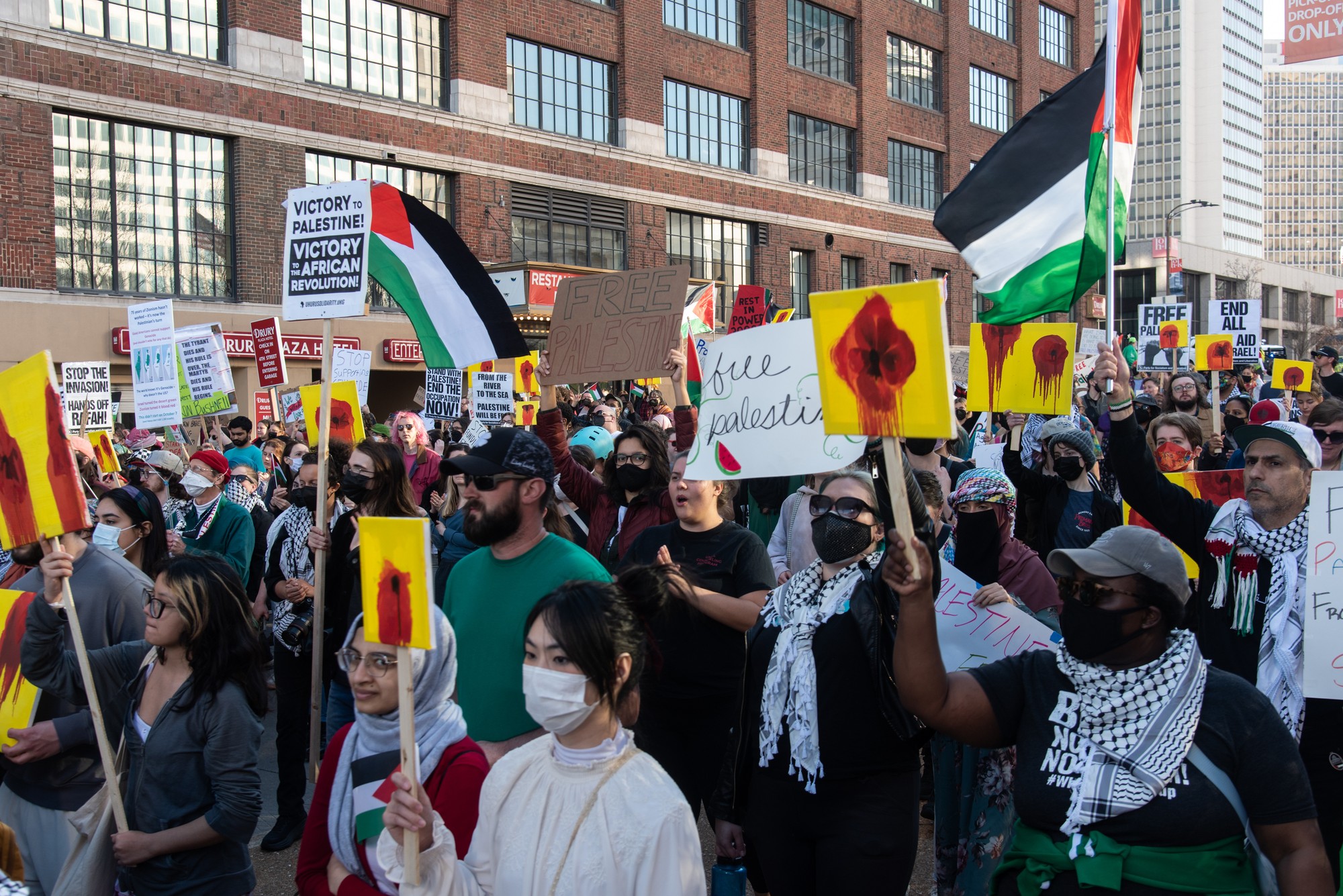
Saj Issa, Poppy Protest Paintings (at a protest in St Louis, MO), 2024
Of course the United States and the UK have blood on their hands. But it’s back at home that I really notice the failures. I’ve never believed in those ugly empires, and although our colonial history here is shared and just as bloody, I had hoped for more.
The New Zealand Human Rights Commission took two full months to call for a ceasefire, and the only statement on their website regarding the ‘Israel Gaza conflict’ at the time of writing twists itself to place the Zionist entity and Palestine on the same playing field. Thousands of people taking part in months of protests in Britomart and Aotea Square, and one lonely statement on the website of the Crown entity supposedly concerned with New Zealand’s contribution to human rights.
They want us to feel like we are only throwing shit at the wall.
15 October — Auckland War Memorial Museum was lit up with the colours of the ‘Israeli flag’. Anti-genocide protestors blacked the lights out.
21 April — Despite repeated calls for our country to divest from the Zionist entity in the midst of so much death, Jack Tame interviewed their Ambassador, Ran Yaakoby, allowing him to repeat, at length, already disproven and retracted claims of decapitations and rapes on 7 October, without challenge.
14 May — The New Zealand Herald published an entire page of Zionist propaganda (paid for by the Protection of Zion Trust) wishing ‘the state of Israel’ a happy birthday.
28 May — An Israeli air strike killed at least forty-five Palestinians sheltering in a tent camp in Rafah, having been displaced from their homes by the Zionist entity. And RNZ led their news story on it with a quote from Benjamin Netanyahu, ‘Israel says deadly strike on Gaza tent camp was a “tragic mistake”’. There are over 300 comments under RNZ’s post criticising their wording and complicity in amplifying the Zionist entity’s reframing.
These examples are just a small selection of the messes our institutions are making. Everywhere we turn we can observe their determined efforts to codify Zionism. How severe is this disconnect? How stark! How wide the canyon between my peers and our desire to support the liberation of the Palestinian people, and our government, news, and media rolling their eyes.
How embarrassing and obvious, waiting until the coast is clear, to reach out and peel a Palestinian flag off a door.
⁘
I keep looking for fingerprints. The actual people inside these institutions. I know that, like me, they are working within challenging structures, and are forced every day to compromise. But I am surprised to keep finding so little humanity in the machine.
Every call we make to a politician’s answerphone, every protest that goes unreported by the media, every letter that gets shoved to the bottom of the editor’s pile — all of it serves to make us feel invisible. I’ve had the most bizarre and disappointing interactions with editors at Stuff. I’ve stared through a tinted window at Christopher Luxon’s shiny head, watched him smile a little as he is whisked away from protestors. Kept safe from those who are (still quite politely) suggesting he take some form of useful action to help prevent the gruesome murder of tens of thousands more people.
In so many ways, the person picking up the phone in his office is just like me. But sitting side by side with this is my experience — since the Roast Busters case broke in 2013, when I first noticed the chill in the air, every institution I have beaten my way into has failed me.
At least our collective memories of the Roast Busters are damning, which means the people who ignored these young victims and their experiences did not get away without consequence. I hold on to this because I’m curious about what we will remember of this time in which we live. So many of my peers posted in support of ‘Israel’ and soon deleted. I won’t forget. I say that less as a threat and more as evidence of change. Existing in the global north at the same time genocide is broadcast live from the south necessitates exposure. The least we could do in this time is reveal ourselves to one another. Lay bare what we are capable of and say goodbye to anything we can stand to lose — whether that be former friends or job opportunities that would likely compromise us anyway.
I won’t forget.
When I was a broke and naive teenager, I wrote plays to be a better actor. Now I can see we weren’t so much practising acting as we were practising our own point of view. Learning to have one in the first place and learning how much courage it took to share ourselves with others.
From this space of relative security, ensconced now within one of the institutions that for so long seemed impenetrable, I have a better view. Maybe it’s based on experience, maybe it’s wishful thinking, but weird and useful possibilities arise when no one expects you to be any good. When we are paid little mind, assumed to be brief in our desires and only mildly serious about their outcomes, we are boundless.
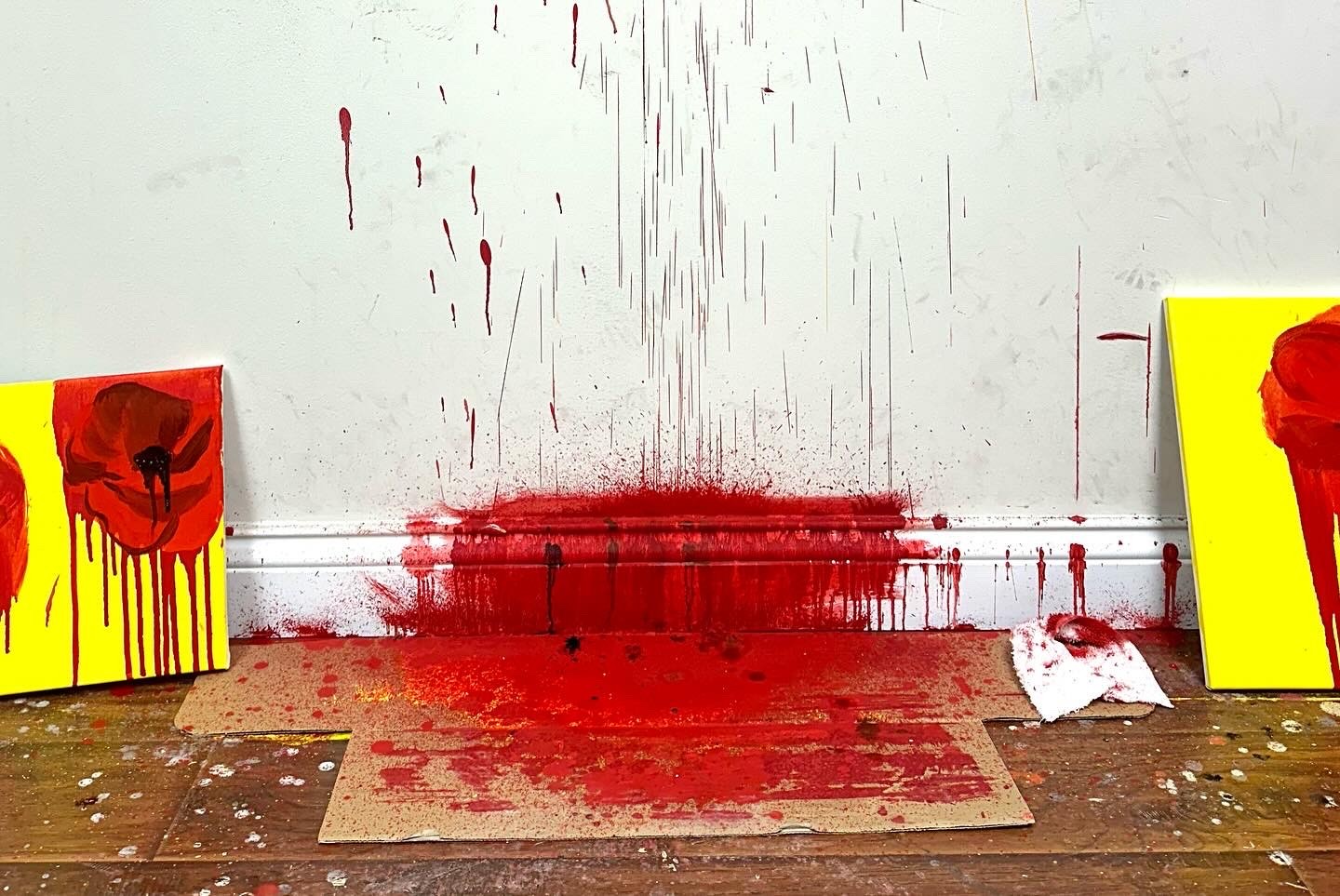
Saj Issa, Poppy Protest Paintings (Saj's studio), 2024
I keep thinking about what is possible when a person is discounted. What plans we can make when no one is waiting for us to make them. Whether developed outside an audition room, or in Te Komititanga Britomart Square every Sunday at 2pm during a protest — there is some power in what you can dream up when everyone who would tell you no is pretending to be busy.
I hope the structures that are already rotting from the inside do not outlast us, and that we take heed from the brave Palestinian resistance, to whom we owe so much. Both for exposing our inability to be useful in bringing down the Zionist entity sooner, and for unravelling the shortcomings of our own institutions and revealing us to one another.
I look forward to seeing the same faces, week in and out, as we march towards the imminent freedom of Palestine with others across the world. We are growing in shared resources and knowledge, taking note of who we walk alongside, and insistent that our dogged belief in the future be the wings that take us to it.
—
I’m done talking, sir, I’m saying what I feel.
I’m on the cliff of myself & these aren’t wings, they’re futures.
— 'Beautiful Short Loser', Ocean Vuong


